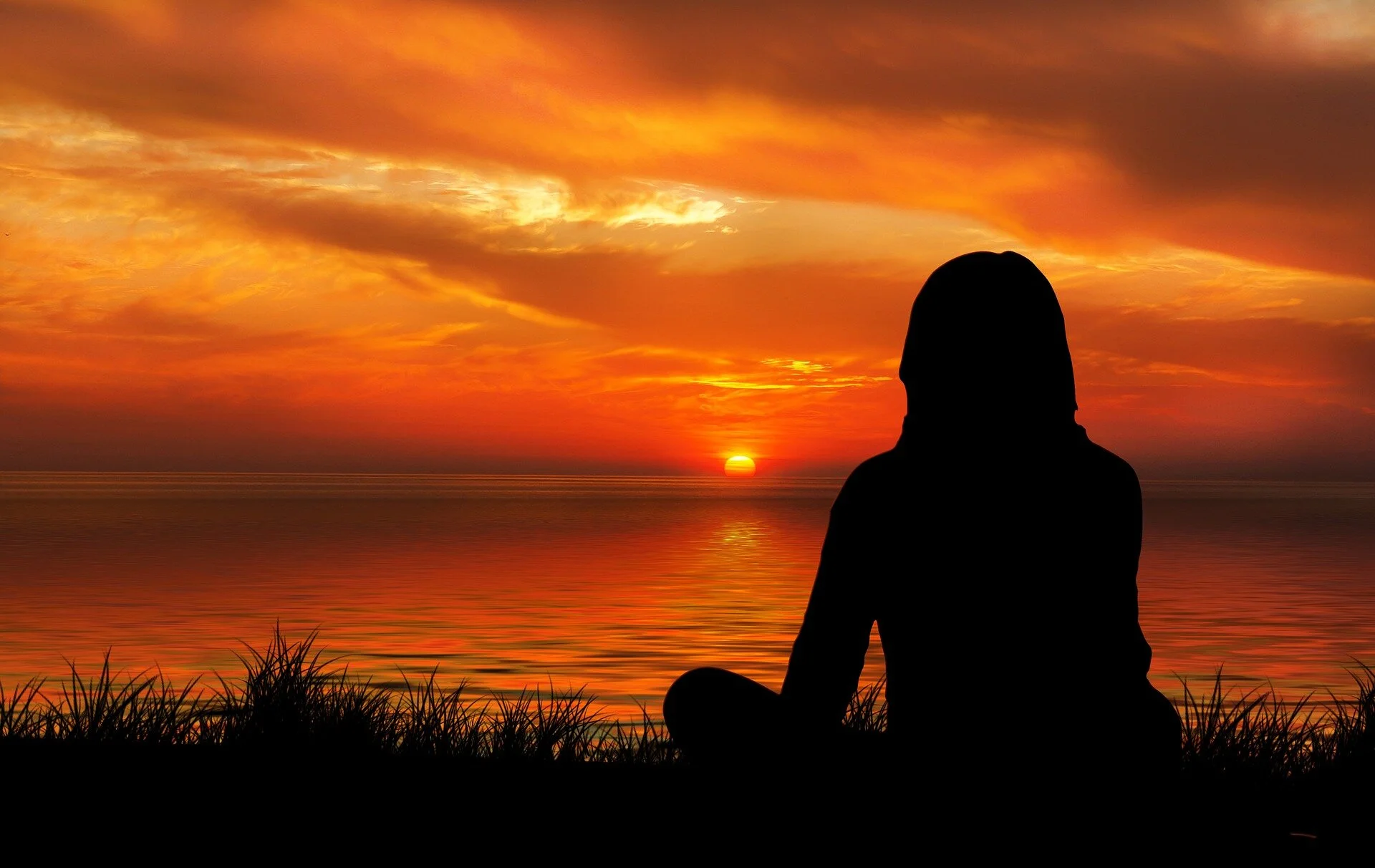Day-to-Day Life and the Realm of Ideas: Contemplation and Embodiment in the Life of a Philosopher
I’ve been thinking a lot lately about what distinguishes philosophers from non-philosophers. While there are many possible candidate criteria for what makes a philosopher unique, one thing that came to mind is that philosophers live their day-to-day lives not just in the practical realm but also in the realm of ideas.
The tension between the realm of ideas and day-to-day life goes back at least as far as Thales, generally accepted as the first Western philosopher. Although one could argue that the tension between the realm of ideas and day-to-day life has existed as longs humans have been self-aware enough to have genuine ideas (as opposed to instinctive reactions or proto-philosophical drives and desires). This tension is not limited to the history of Western philosophy, by any means.
Thales, of course, is known to have been so preoccupied with the realm of ideas—looking toward the sky trying to understand the heavens—that he fell into a well because he wasn’t looking where he was walking. Living in the realm of ideas has gotten a bad rap ever since, from Thales onward, as philosophers are generally seen as impractical people with their heads constantly in the clouds instead of focused on the practical tasks at hands, or on the business of day-to-day life.
Non-philosophers who live a mostly or entirely practical life enjoy the benefits of focus and simplicity of purpose. As long as they meet their commitments, get their tasks done, spend time with their friends and family, and are financially secure enough to maintain their livelihoods and way of life, they are generally content. Non-philosophers have a single stream of consciousness, and it is a highly practical one.
Philosophers, too, must handle the same day-to-day business of life as non-philosophers. They likewise must pay the bills, make ends meets, and eke out a productive, hopefully happy life for themselves. In addition to this practical steam of consciousness, however, philosophers also have a second almost-always-active stream of consciousness consisting of their inner monologue and reflections on any number of philosophical issues, concepts, speculations, and ideas—what I have collectively lumped together and called the “realm of ideas.”
Clearly these two streams of consciousness, the practical stream of consciousness and the stream of consciousness that lives in the realm of ideas, are at odds with each other. To the extent one focuses on practical matters—from getting a job to getting laid—philosophers aren’t thinking philosophically (although there is something inherently transcendent about some embodied experiences, from climbing the highest mountains, literarily or metaphorically, to the most memorable and immersive sexual experiences). And to the extent philosophers are focused on the realm of ideas, they run the risk, like Thales, of not dealing well with the practical needs of their own day-to-day lives. In short, philosophers are almost always in a constant state of discontentment, or at least uneasiness.
Plato, though the voice of Socrates, discusses this tension between the competing pulls of philosophical contemplation and our practical concerns in his Phaedo dialogue:
“The lovers of learning know that when philosophy gets hold of their soul, it is imprisoned in and clinging to the body, and that it is forced to examine other things through it as a cage and not by itself, and that it wallows in every kind of ignorance. Philosophy sees that the worst feature of this imprisonment is that it is due to desires, so that the prisoner himself is contributing to his own incarceration most of all.” (Plato, Phaedo, 82d–82e)
While I’m not one to throw out the desires and needs of the body as Plato suggests, quite the contrary, being more Nietzschean and romantic in my temperament, and hedonistic in my bodily needs, Socrates and Plato are absolutely correct that there is an irreconcilable tension between the needs of the body and the needs of the mind for philosophers. Non-philosophers don’t feel this tension; they are content to live entirely in the realm of the practical (however lofty or noble their practical concerns may be) and of the day-to-day. Non-philosophers don’t have a rich intellectual life and thus don’t feel their minds or souls pulled out of the practical, if not out of the body.
Philosophers, however, are perpetually frustrated by the fact that their second stream of consciousness—the one that dwells on philosophical issues of all sorts, such as the nature of justice, the nature of consciousness, the meaning and finitude of human life, the nature and origin of reality, and so on—is constantly interrupted by practical matters that are, frankly, beneath them when their unique ability to soar higher, and with greater and more noble purpose, than those who are content to live their lives in the realm of the practical. Even if philosophers take an occasional or frequent break from the realm of ideas for meals and sex (yes, we philosophers generally love mealtime and sexy-time—a lot in my experience; they are a much-needed intellectual break and create a feeling of embodiment and physical connection after so much time spent in our own philosophical headspace), philosophers are perpetually frustrated at having their second, intellectual stream of consciousness broken involuntarily by the mundane concerns of day-to-day life.
The very existence of this second, intellectual or philosophical stream of consciousness is completely foreign to people without a philosophical temperament—to those with only a single, practical stream of consciousness. Even if all humans are bothered by some existential question or other about the meaning and purpose of life, only philosophers do a deep dive into philosophical abstraction and step away from their lower, practical stream of consciousness so forcefully and boldly and compulsively into the realm of ideas. Thus the philosopher will always be a stranger in a strange land among non-philosophers, and vice versa. Some rare individuals and students make the jump from being non-philosopher to being philosophers; they learn to develop a second stream of consciousness above and beyond their day-to-day, practical stream of consciousness. Once that step has been taken, there is no going back; they have passed the point of no return; they have become true philosophers, never again to return to mere day-to-day life, at least not fully.
Obviously being a philosopher has its downsides. Philosophers lose their ability to relate to non-philosophers who don’t share their love of ideas, reflection, or contemplation. And philosophers struggle to feel fully in the moment in any day-to-day environment. They struggle with feeling fully embodied and at home in the physical world, whether in terms of one’s own practical needs, even the most pleasurable ones (sex, food, wine, adventure). Philosophers are thus perpetually bifurcated, living two lives in one: a practical, day-to-day life and a separate, parallel life in the realm of ideas. And these two lives and streams of consciousness are perpetually at war with each other, or at least in an uncomfortable truce.
Even the most hedonistic of philosophers like myself know that they aren’t living up to their full intellectual potential for every moment they indulge in the needs of desires of their bodies, and for every practical item we check off our daily to-do lists. And we also know that we are missing out on some of the pleasures, passions, and simple joys that non-philosophers are so easily fulfilled by. Moreover, we can never decide whether to envy or pity non-philosophers for being so simply satisfied with their own day-to-day lives.
In my own personal experience, I myself am desperately in need of embodiment (adventure!), passion (romantic or sexual or otherwise), and wholeness (the unity of mind and body) after being so very much in my own head from moment to moment, day after day, no matter how social of a creature I might also be. And this is something that non-philosophers may never experience directly or even fully understand: that, for philosophers, this second, intellectual stream of consciousness is their primary one, as real (perhaps more so!) and comfortable to them as the practical stream of consciousness is to the average man or woman on the street.
Philosophers may live their day-to-day lives with their bodies in the physical and practical world like everybody else, but we are at home only in the realm of ideas, no matter how much we indulge in the same desires and pleasures and needs as everybody else, and our minds live in a different stream of consciousness altogether. Sometimes we come down from the clouds of contemplation willingly (again, sex and food—oh, and pass the wine!), but all too often we are dragged kicking and screaming from our own philosophical musings into the realm of the practical, usually more times a day than we can count.
In short, there are two ways that you can help a philosopher: (1) leave them be and let them concentrate on their second, intellectual and philosophical stream of consciousness, and (2) give them lots of sex, food, wine, and adventure—in any order!—to help them feel fully embodied and in the moment, to feel that their two streams of consciousness are harmonious and convergent instead of discordant and divergent. Non-philosophers will never feel this tension or these needs as deeply or fully as philosophers, at least not in the same way. And they will never understand the philosophers’ needs, both to escape the practical and live for a time in the realm of ideas, and to unite their bodies and their minds, the longings of their philosophical souls and the desires of their physical bodies, holistically and transcendently—metaphysically even. (Yes, even sex, food, and wine have their metaphysical and epistemological roles to play in the contemplative life!)
Socrates and Plato, of course, took philosophy in the direction of radical disembodiment. For them, the true philosopher learns to hate the practical, the day-to-day, and his or her own embodiment. (The prison metaphor from the Phaedo isn’t a happy one.) For those of us who aren’t philosophical escapists, however, we seek not to escape the body, but to have as much time the realm ideas as possible while making sure our body’s needs are met. Satiated by sex, food, wine, and adventure, and with a steady paycheck, we free ourselves and our minds to pursue that second stream consciousness more fully and primarily.
Despite the struggle and the tension between mind and body, philosophers will know a pleasure and satisfaction far richer than those felt by any non-philosopher, even when we are constantly being pulled down out of the clouds, out of our realm of ideas, into the realm of day-to-day concerns. Even the pleasures of the body are more meaningful for a philosopher, and we experience a joy and a comfort in our contemplations that others will never know. As John Stuart Mill once said,
“It is better to be Socrates dissatisfied than a fool satisfied.” (Mill, Utilitarianism)







